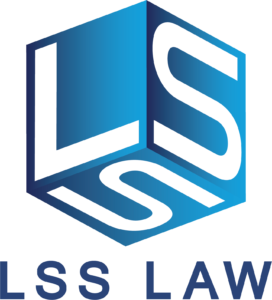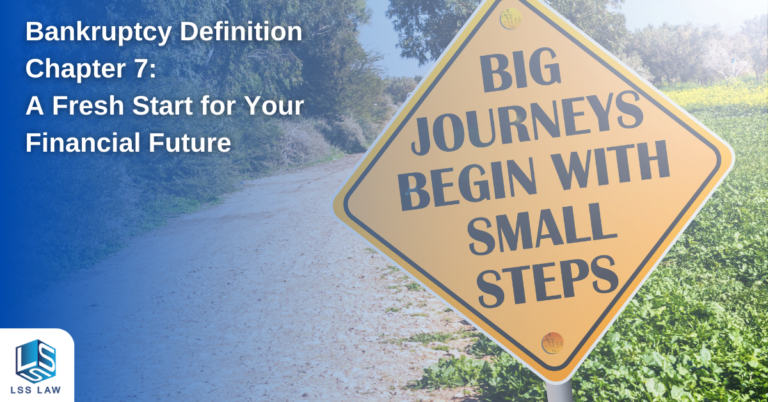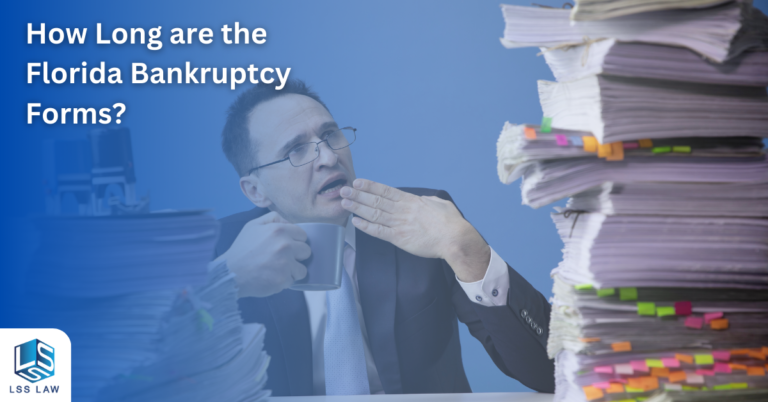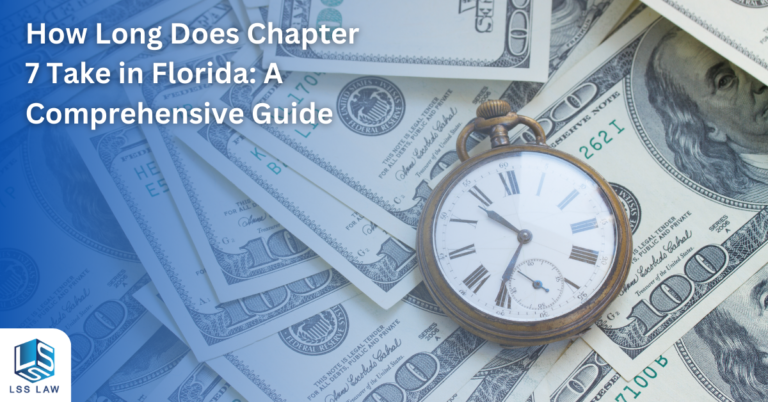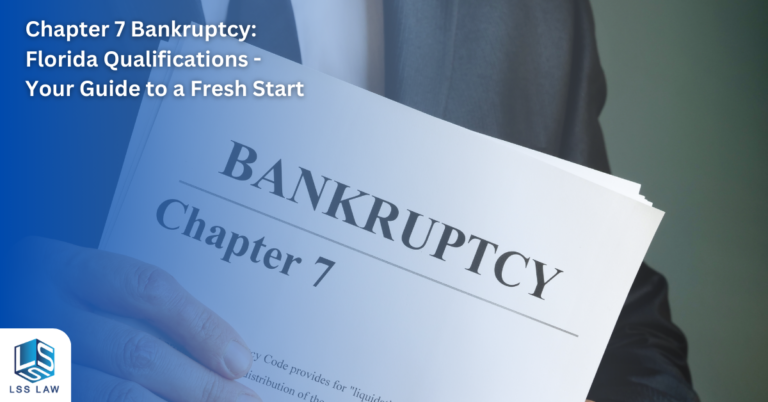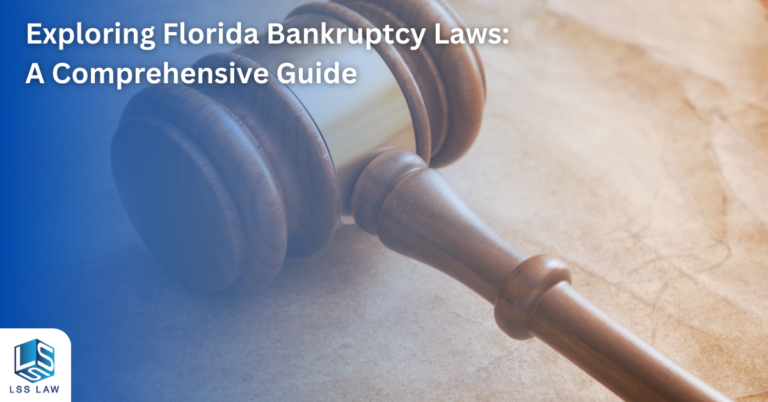Facing financial difficulties can be overwhelming and stressful. But remember, you’re not alone. Many people struggle with debt, and it’s essential to know that there are options available to help you regain control of your finances. One such option is Chapter 7 bankruptcy. In this article, we’ll explore the bankruptcy definition in Chapter 7 and how it can provide a fresh start for those struggling with debt.
What is Bankruptcy Definition Chapter 7?
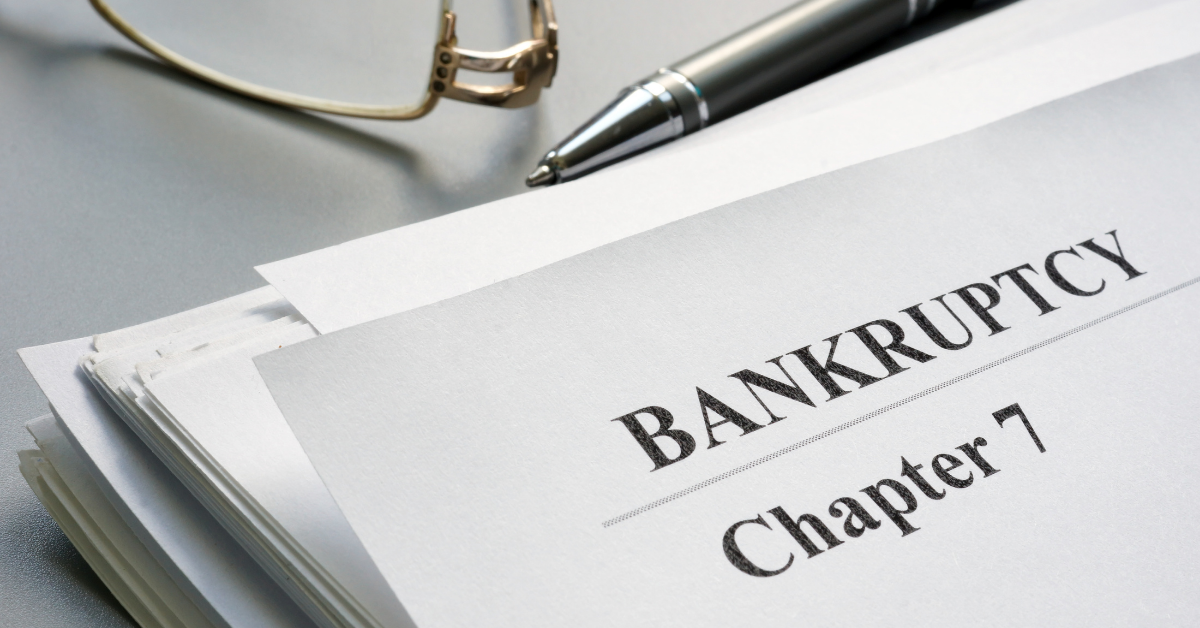
Chapter 7 bankruptcy, also known as liquidation bankruptcy, is a legal process that allows individuals and businesses to eliminate most of their unsecured debt. This type of bankruptcy involves the sale of a debtor’s nonexempt property by a bankruptcy trustee, who then distributes the proceeds to creditors.
Eligibility for Chapter 7 depends on the debtor’s current monthly income and a means test, which compares the debtor’s income to the state’s median income and determines disposable income after necessary living expenses. Chapter 7 is available to individuals, partnerships, corporations, or other business entities.
Bankruptcy Definition Chapter 7 Explained
When filing for Chapter 7 bankruptcy, the debtor must provide a detailed list of their assets, debts, income, and expenses. The bankruptcy trustee will then gather and sell the debtor’s nonexempt assets to pay off unsecured creditors. Nonexempt property includes items that are not protected under federal or state exemption laws, such as luxury items, second homes, or valuable collections.
Exempt property, on the other hand, is protected from liquidation and may include items such as a primary residence, necessary clothing, household goods, and retirement accounts. Federal and state exemption limits apply to property values in Chapter 7 bankruptcy.
One of the main benefits of Chapter 7 bankruptcy is the discharge of most unsecured debts, including credit card debt, medical bills, and personal loans. However, certain debts are not dischargeable in Chapter 7 bankruptcy, such as child support, alimony, court fees, and some tax debts.
It’s essential to note that Chapter 7 bankruptcy does not involve a plan of repayment like Chapter 13 bankruptcy. Instead, the bankruptcy process focuses on liquidating nonexempt assets to pay off debts. This makes Chapter 7 an attractive option for those with limited income and assets who cannot afford a repayment plan.
The process of filing for Chapter 7 bankruptcy typically takes four to six months to complete. During this time, an automatic stay provision goes into effect, stopping most collection actions against the debtor. Once the bankruptcy process is complete, the debtor receives a discharge, which releases them from personal liability for most debts.
Secured Debts and Unsecured Debts in Chapter 7 Bankruptcy
Chapter 7 bankruptcy primarily deals with unsecured debts, which are debts that do not have collateral attached to them. Examples of unsecured debts include credit card debt, medical bills, and personal loans. In contrast, secured debts are those with collateral, such as a mortgage or car loan.
In the Chapter 7 bankruptcy code, secured debts may still require repayment or property repossession if the debtor cannot afford to keep the property. However, in some cases, the debtor may be able to reaffirm the debt, allowing them to keep the property while continuing to make payments.
It’s essential to consult with an experienced bankruptcy attorney when considering Chapter 7 bankruptcy, as the process can be complex and may not be the best option for everyone. By working with a knowledgeable attorney, you can better understand your financial situation and determine if Chapter 7 bankruptcy is the right choice for you.
The Role of Credit Counseling in the Bankruptcy Process
Before filing for Chapter 7 bankruptcy, individuals are required to complete credit counseling with an approved credit counseling agency. This step is crucial in helping debtors understand their financial situation, explore alternatives to bankruptcy, and develop a plan to manage their debts moving forward.
During the credit counseling session, the counselor will review the debtor’s financial situation, including income, expenses, and debts. They will discuss possible alternatives to bankruptcy, such as debt consolidation, debt settlement, or a debt management plan. If bankruptcy is still the best option, the counselor will provide a certificate of completion that must be submitted with the bankruptcy forms.
After filing for Chapter 7 bankruptcy, debtors must also complete a debtor education course before receiving their bankruptcy discharge. This course covers topics such as budgeting, managing money, and using credit wisely. By completing both credit counseling and debtor education, individuals can better understand their financial situation and make informed decisions about their future.
The Bankruptcy Trustee: An Essential Part of the Chapter 7 Process
A bankruptcy trustee plays a critical role in the Chapter 7 bankruptcy process. Appointed by the bankruptcy court, the trustee is responsible for reviewing the debtor’s financial information, liquidating nonexempt assets, and distributing proceeds to creditors.
The trustee will also oversee the required meeting of creditors, also known as the 341 meeting. During this meeting, the debtor must answer questions about their financial affairs and the information provided in their bankruptcy forms. Creditors may also attend the meeting and ask questions, although this is relatively rare.
In addition to managing the liquidation process, the bankruptcy trustee also has the authority to recover certain property transfers made before filing for bankruptcy. These transfers, known as preferential or fraudulent transfers, may be reversed to ensure a fair distribution of assets among creditors.
Rebuilding Your Financial Life After Chapter 7 Bankruptcy
While Chapter 7 bankruptcy can provide a fresh start for those struggling with debt, it’s essential to take steps to rebuild your financial life after the bankruptcy process is complete. One of the first steps in this process is to review your credit report and ensure that all discharged debts are accurately reported as such.
It’s also crucial to develop a budget and stick to it, as well as establish an emergency fund to help prevent future financial difficulties. Additionally, consider working with nonprofit credit counseling agencies to develop a plan for managing your finances and using credit responsibly.
While Chapter 7 bankruptcy will remain on your credit report for ten years, it is possible to rebuild your credit over time. By making timely payments on any remaining debts and using credit wisely, your credit score can improve significantly in the years following your bankruptcy discharge.
Remember, bankruptcy is not the end of the world but rather a financial tool that can help you regain control of your financial situation. By understanding the bankruptcy definition Chapter 7 and working with an experienced bankruptcy attorney, you can make the best decision for your financial future.
Understanding the Means Test for Chapter 7 Bankruptcy

To qualify for Chapter 7 bankruptcy, individuals must pass the means test, which compares their income to the state’s median income and determines their disposable income after necessary living expenses. The means test is designed to ensure that only those who genuinely cannot repay their debts are eligible for Chapter 7 relief.
The first step of the means test involves comparing the debtor’s average monthly income to the median income for a household of the same size in their state. If their income is below the median, they automatically qualify for Chapter 7. However, if their income is above the median, they must proceed to the second step of the means test.
The second step of the means test involves calculating the debtor’s disposable income by subtracting certain allowed expenses from their monthly income. These expenses include housing, transportation, utilities, and other necessary living expenses. If the debtor’s disposable income is below a certain threshold, they may still qualify for Chapter 7 bankruptcy.
It’s essential to work with an experienced bankruptcy attorney when navigating the means test, as it can be a complex and detailed process. Your attorney can help ensure that you accurately calculate your income and expenses and determine your eligibility for Chapter 7 relief.
Exemptions in Chapter 7 Bankruptcy: Protecting Your Assets
One of the primary concerns for individuals considering Chapter 7 bankruptcy is the potential loss of their assets. However, it’s important to understand that not all property is subject to liquidation in the bankruptcy process. Both federal and state laws provide exemptions that protect certain assets from being sold to repay creditors.
In Florida, some of the most common exemptions include:
- Homestead exemption: Protects an unlimited amount of equity in a primary residence, with size limitations based on location.
- Motor vehicle exemption: Protects up to $1,000 in vehicle equity.
- Retirement accounts: Generally exempt from liquidation in Florida Chapter 7 Bankruptcy.
- Personal property and wildcard exemptions: Allow for additional protection of personal property.
It’s crucial to work with a knowledgeable bankruptcy attorney to understand and utilize the available exemptions in your case. By doing so, you can protect as much of your property as possible while still obtaining relief from your debts.
Dealing with Non-Dischargeable Debts in Chapter 7 Bankruptcy
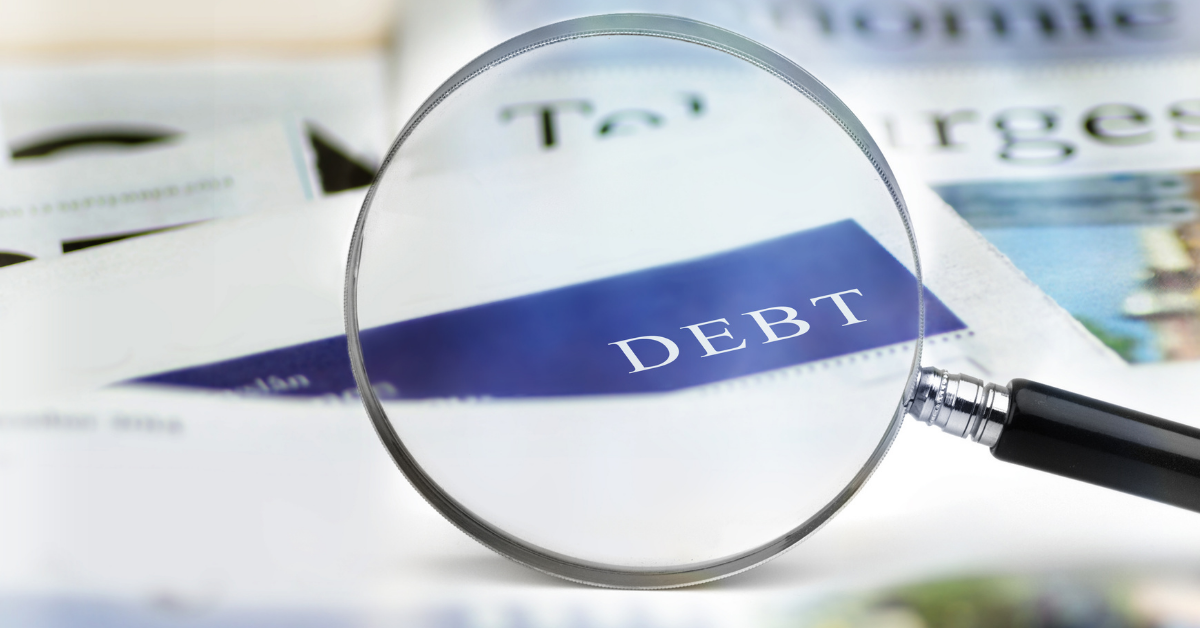
While Chapter 7 bankruptcy can discharge most unsecured debts, some debts are considered non-dischargeable and will not be eliminated in the bankruptcy process. Examples of non-dischargeable debts include:
- Child support and alimony obligations
- Certain tax debts
- Student loans, unless an undue hardship can be proven
- Debts incurred due to fraud, embezzlement, or theft
- Debts resulting from personal injury or wrongful death caused by the debtor’s intoxication
It’s essential to understand which debts will not be discharged in your Chapter 7 bankruptcy case and plan accordingly. In some instances, individuals with significant non-dischargeable debts may be better served by considering alternatives to bankruptcy, such as debt settlement or a Chapter 13 debt repayment plan. Working with an experienced bankruptcy attorney can help you evaluate your specific situation and determine the best course of action for your financial future.
The Role of a Bankruptcy Attorney in Chapter 7 Bankruptcy
Navigating the complex world of Chapter 7 bankruptcy can be challenging and overwhelming for individuals facing financial difficulties. A skilled bankruptcy attorney can provide invaluable assistance throughout the bankruptcy process, ensuring that you make informed decisions and achieve the best possible outcome for your financial situation.
Some of the key services a bankruptcy attorney can provide include:
- Explaining the bankruptcy process and your options, including alternatives to bankruptcy
- Helping you determine if Chapter 7 bankruptcy is the right choice for your financial situation
- Assisting with the means test and determining your eligibility for Chapter 7 relief
- Advising on exemptions and helping you protect your assets
- Preparing and filing the necessary bankruptcy forms and documents
- Representing you at the meeting of creditors and other court proceedings
- Guiding you through the process of rebuilding your credit after bankruptcy
By working closely with a bankruptcy attorney, you can have peace of mind knowing that you have a knowledgeable advocate on your side, guiding you through each step of the Chapter 7 bankruptcy process.
Life After Chapter 7 Bankruptcy: Rebuilding Your Credit and Financial Future
Although filing for Chapter 7 bankruptcy may initially have a negative impact on your credit score, it’s important to remember that bankruptcy is not a permanent stain on your financial record. With time, effort, and a commitment to responsible financial habits, you can rebuild your credit and create a brighter financial future.
Here are some steps you can take to rebuild your credit after Chapter 7 bankruptcy:
1. Review your credit report: Regularly review your credit report to ensure that all discharged debts are accurately reported and to identify any errors that may be negatively impacting your credit score.
2. Establish a budget: Create a realistic budget that accounts for all of your income and expenses, and commit to living within your means.
3. Build an emergency fund: Set aside money in a savings account to cover unexpected expenses and avoid relying on credit cards or loans in the future.
4. Use credit responsibly: Obtain a secured credit card or small installment loan to help rebuild your credit. Make sure to make all payments on time and in full, and keep your credit utilization low.
5. Pay bills on time: Consistently paying your bills on time is one of the most important factors in rebuilding your credit after bankruptcy.
6. Monitor your progress: Keep track of your credit score and credit report to monitor your progress and identify areas for improvement.
Remember that rebuilding your credit after Chapter 7 bankruptcy takes time and dedication. By following these steps and working closely with a bankruptcy attorney, you can create a strong foundation for a brighter financial future.
Alternatives to Chapter 7 Bankruptcy: Exploring Other Debt Relief Options
Before deciding to file for Chapter 7 bankruptcy, it’s crucial to explore all available debt relief options. In some cases, alternatives to bankruptcy may better suit your financial situation and long-term goals. Some of the most common alternatives to Chapter 7 bankruptcy include:
Debt settlement:
Negotiating with your creditors to settle your debts for less than the full amount owed can be a viable alternative to bankruptcy. This process typically involves working with a debt settlement company or attorney to negotiate on your behalf.
Credit counseling:
Nonprofit credit counseling agencies offer free or low-cost services to help individuals and families create a budget, manage their finances, and develop a debt management plan. These agencies can also negotiate with your creditors to lower interest rates and waive fees, making it easier for you to pay off your debts over time.
Debt consolidation:
Combining multiple high-interest debts into a single, lower-interest loan can simplify your monthly payments and potentially reduce your overall debt burden. This option may be suitable for individuals with good credit who can qualify for a favorable interest rate on a debt consolidation loan.
Chapter 13 bankruptcy:
For individuals with a regular income who do not qualify for Chapter 7 bankruptcy, Chapter 13 may be an option. This type of bankruptcy involves creating a debt repayment plan developed to pay off your debts over a three to five-year period, allowing you to keep your assets while repaying your creditors.
It’s essential to carefully consider each alternative and consult with a bankruptcy attorney to determine the best course of action for your unique financial situation. By exploring all of your options, you can make an informed decision and take the first step toward a brighter financial future.
Bankruptcy Definition Chapter 7 – Frequently Asked Questions
Can I keep my home and car in Chapter 7 bankruptcy?
In many cases, you can keep your home and car during Chapter 7 bankruptcy if their value falls within the allowed exemptions for your state, and you continue to make your mortgage and car loan payments. Florida has a generous homestead exemption and a motor vehicle exemption of up to $1,000 in vehicle equity. Consult with a bankruptcy attorney to evaluate your specific situation.
How long does Chapter 7 bankruptcy take?
The Chapter 7 bankruptcy process typically takes four to six months to complete. This time frame includes filing the necessary paperwork, attending a meeting of creditors, and receiving a discharge of eligible debts.
How often can I file for Chapter 7 bankruptcy?
You can only receive a discharge in Chapter 7 bankruptcy once every eight years. If you have previously filed for Chapter 7 and need debt relief again, consider exploring other options such as Chapter 13 bankruptcy or debt settlement.
Will Chapter 7 bankruptcy ruin my credit?
While Chapter 7 bankruptcy will have a negative impact on your credit report, it is not a permanent mark. A Chapter 7 bankruptcy remains on your credit report for ten years, but with responsible financial management and credit rebuilding strategies, you can improve your credit score over time.
Are student loans dischargeable in Chapter 7 bankruptcy?
Generally, federal student loans are not dischargeable in Chapter 7 bankruptcy. However, in rare cases, you may be able to prove undue hardship to the bankruptcy court, which could result in the discharge of your student loans. Consult with a bankruptcy attorney to discuss your specific situation.
Contact Us to Learn More About Bankruptcy Definition Chapter 7
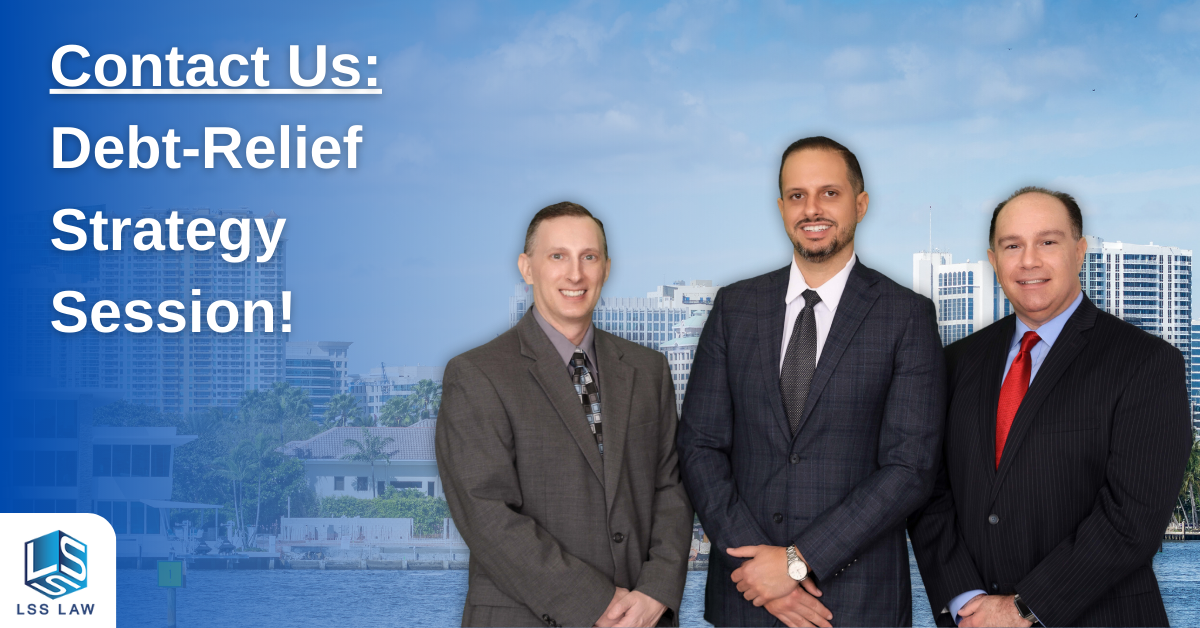
If you’re struggling with debt and considering Chapter 7 bankruptcy, don’t hesitate to reach out to our experienced team at LSS Law. We’re here to help you understand your options and guide you through the bankruptcy process. To schedule a free consultation for personal bankruptcies, give us a call at (954) 466-0541 or visit our contact page for more information. Let us help you remove the financial burden from your shoulders and open the door to a brighter future.
